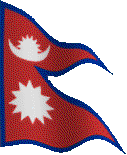|
Life
in a time of cholera : The history of
Kathmandu’s past epidemics is the story of
power, disease, and dependency, by Ajaya
Dixit (nt 03/01/2026)
Teaching
history as an open debate : Argument-focused
history is the best way to teach history to
students in Nepal, by Pratyoush Onta (kp
10/11/2025)
The
agony of reclaiming lost territory, by Mohan
Mainali (nn 27/10/2025)
Neglecting
history in education : Reclaiming and preserving
our historical consciousness is vital for
shaping our future, by Sambhavi Bashyal (kp
26/09/2025)
The
story of Singha Durbar: From fire to fire : The
cause of the first devastating fire in 1973
remains a mystery. The need to rebuild it after
the recent destruction should not be, by
Sanskriti Pokharel (kp 14/09/2025)
Nepal
Bridges Two Great Civilisations, by Yuba
Nath Lamsal (rn 10/09/2025)
Unseen
guards: Women, power and overlooked security,
by Sabina Jamarkattel (ae 06/08/2025)
St
Xavier’s at 75 : The school has benefited Nepal
over the past three quarters of a century,
by Pratyoush Onta (kp 14/07/2025)
Observation
of Republic Day: A scene of unparalleled
contrast, by Jiba Raj Pokharel (ht
04/06/2025)
Misconceptions
Sparked by ‘The Cleaved Kingdom’, by
Arjunbabu Mabuhang (kh 03/06/2025)
Nepal
is not a failed state, but it is a fragile one :
Two books on the socio-political history of
Nepal have lessons for the country's future,
by Sonia Awale (nt 21/02/2025)
India’s
border trains that connected Nepal : Once upon a
time, Nepalis had to travel through India by
railway to reach another part of Nepal, by
Chandra Kishore (nt 14/02/2025)
Gangalal’s
Legacy: A heartfelt mission of compassion, care
and lasting impact, by Balkrishna Adhikari
(rep 08/02/2025)
Learning
From History, by Bishalya Gautam (rn
25/01/2025)
On
edited volumes : The lack of edited volumes has
contributed to the perception of history as a
‘useless’ discipline, by Pratyoush Onta (kp
18/10/2024)
Nepal
like a ‘yam’ between two rocks : Recognising
history’s multidimensional aspects is the
reality that nations are grappling with today,
by Abhi Subedi (kp 15/09/2024)
Revisiting
the ‘Rashtrabhasha Shiksha Pranali’ : It
contributed to the further entrenchment of the
Nepali language in our public life and civil
service, by Pratyoush Onta (kp 19/07/2024)
New
cave discovered in Kurgha of Parbat (rep
24/03/2024)
Nepal:
Glory of the past, vision for future : We have
faced countless obstacles and set-backs. But
Nepal and Nepalis have demonstrated
extraordinary resilience in times of distress,
by Sergio Shumsher JB Rana (nlt 06/02/2024)
|

